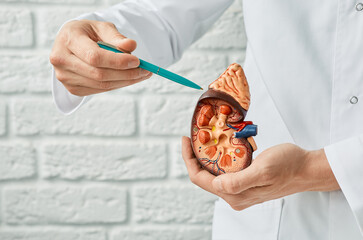
Doctor Of Urology
A Doctor Of Urology is a medical doctor who specializes in the treatment of disorders and conditions of the urinary tract and the male reproductive system. Urologists diagnose and treat a wide range of conditions, including urinary tract infections, prostate cancer, kidney stones, and male infertility. They may also perform surgeries, such as vasectomies and prostatectomies. Urologists often work closely with other healthcare professionals, such as primary care doctors, oncologists, and nephrologists, to provide comprehensive care to their patients.
What Is a Doctor Of Urology:
A urologist is a medical doctor who has completed specialized training in the field of urology, which is the branch of medicine that focuses on the urinary tract and the male reproductive system. Urologists are trained to diagnose, treat, and manage a wide range of conditions that affect these systems, including urinary tract infections, prostate cancer, kidney stones, and male infertility. They may also perform surgeries, such as vasectomies and prostatectomies. Urologists often work closely with other healthcare professionals, such as primary care doctors and oncologists, to provide comprehensive care to their patients.
What We Should Know About The Doctor Of Urology:
Here are a few things you may want to know about urologists:
- Urologists are medical doctors who have completed specialized training in the field of urology.
- They are trained to diagnose and treat a wide range of conditions that affect the urinary tract and male reproductive system, including urinary tract infections, prostate cancer, kidney stones, and male infertility.
- Urologists may also perform surgeries, such as vasectomies and prostatectomies.
- They often work closely with other healthcare professionals, such as primary care doctors and oncologists, to provide comprehensive care to their patients.
- Urologists may work in a variety of settings, including hospitals, clinics, and private practices.
- It is important to see a urologist if you are experiencing any symptoms or problems related to the urinary tract or male reproductive system.
Doctor Of Urology How To Get It?
To become a urologist, you will need to complete several steps:
- Earn a bachelor’s degree: To be accepted into medical school, you will need to complete a bachelor’s degree program, which typically takes four years. During your undergraduate studies, you will need to complete a set of prerequisite courses in subjects such as biology, chemistry, and physics.
- Attend medical school: After completing your undergraduate degree, you will need to attend medical school to earn your Doctor of Medicine (MD) degree. Medical school typically takes four years to complete.
- Complete a urology residency: After earning your MD, you will need to complete a urology residency, which is a program that provides hands-on training in the diagnosis and treatment of urological conditions. Residencies usually last five years and are accredited by the Accreditation Council for Graduate Medical Education (ACGME).
- Pass the certification exam: After completing your urology residency, you will need to pass the certification exam administered by the American Board of Urology (ABU) to become a certified urologist.
- Obtain a medical license: In order to practice medicine, you will need to obtain a medical license from the state in which you want to work. Each state has its own licensing requirements, which may include passing a licensure exam and meeting certain educational and training requirements.
Doctor Of Urology How does Its Work?
As a urologist, you will be responsible for diagnosing and treating a wide range of conditions that affect the urinary tract and male reproductive system. Your specific duties may include:
- Examining patients: You will examine patients to diagnose urological conditions, using techniques such as physical exams and diagnostic tests.
- Prescribing medication: You may prescribe medication to treat urological conditions, such as antibiotics for urinary tract infections or medication to treat prostate cancer.
- Performing surgeries: You may perform surgeries, such as vasectomies and prostatectomies, to treat urological conditions.
- Providing education: You will educate patients on how to manage their urological conditions and prevent further complications.
- Referring patients to specialists: You may refer patients to specialists, such as oncologists or nephrologists, for further treatment if necessary.
- Keeping up with medical advances: You will need to stay current on the latest treatments and technologies in the field of urology in order to provide the best care to your patients.

If you want to get amazing benefits by using this link
Doctor Of Urology Conclusion:
In conclusion, a urologist is a medical doctor who specializes in the treatment of disorders and conditions of the urinary tract and the male reproductive system. They are trained to diagnose and treat a wide range of conditions, including urinary tract infections, prostate cancer, kidney stones, and male infertility. They may also perform surgeries, such as vasectomies and prostatectomies. Urologists often work closely with other healthcare professionals to provide comprehensive care to their patients. To become a urologist, you will need to complete undergraduate studies, attend medical school, complete a urology residency, pass the certification exam, and obtain a medical license. As a urologist, you will be responsible for examining patients, prescribing medication, performing surgeries, providing education, referring patients to specialists, and staying current on medical advances in the field of urology.
